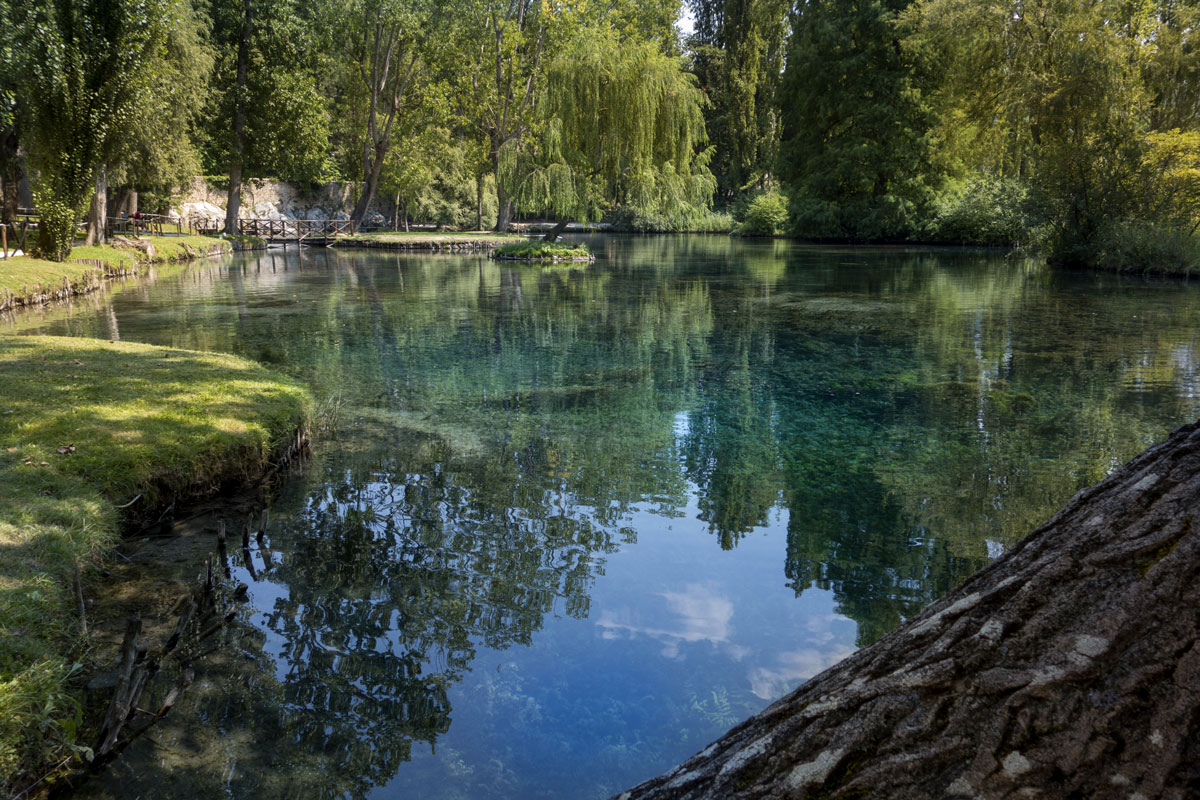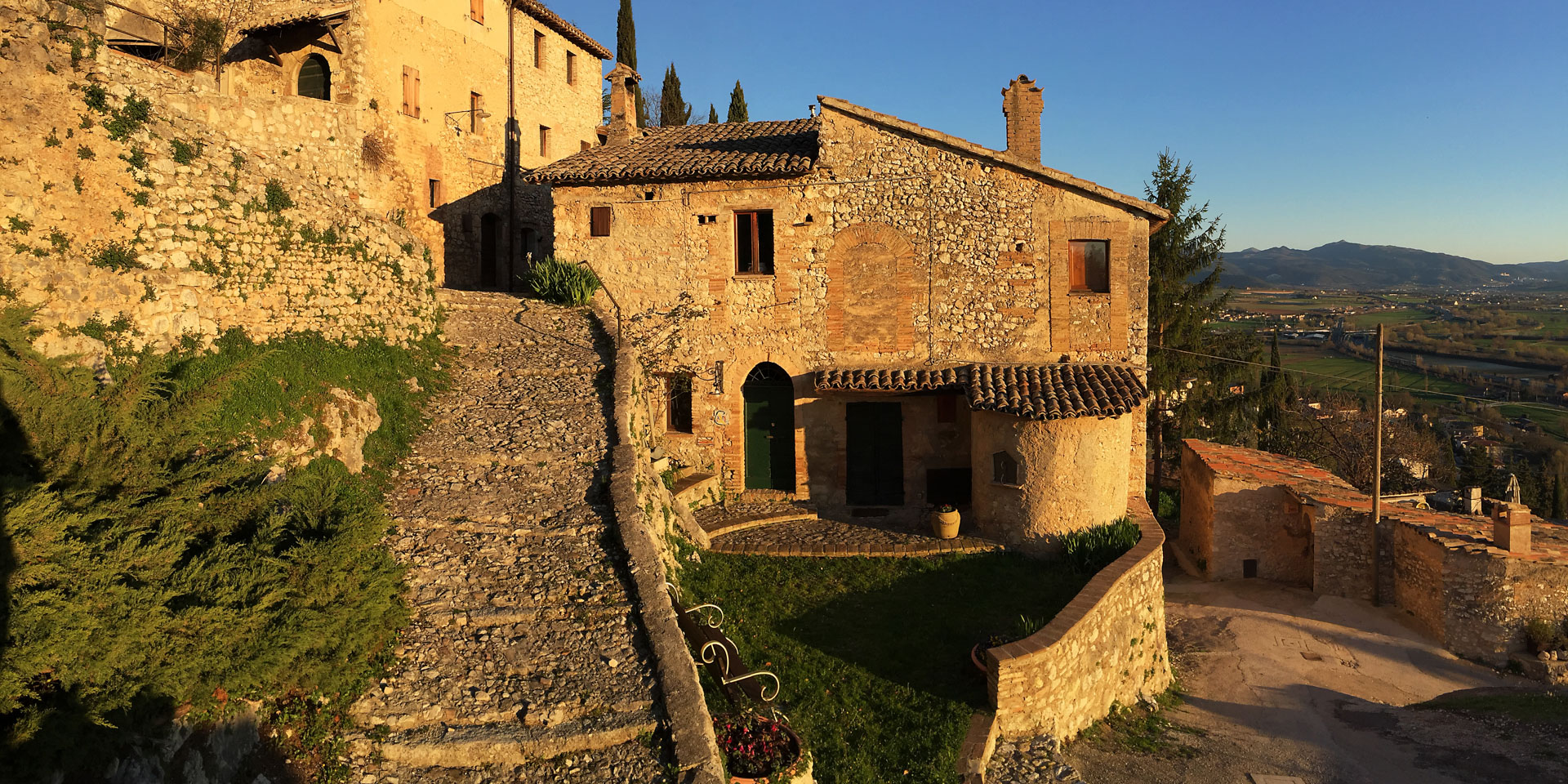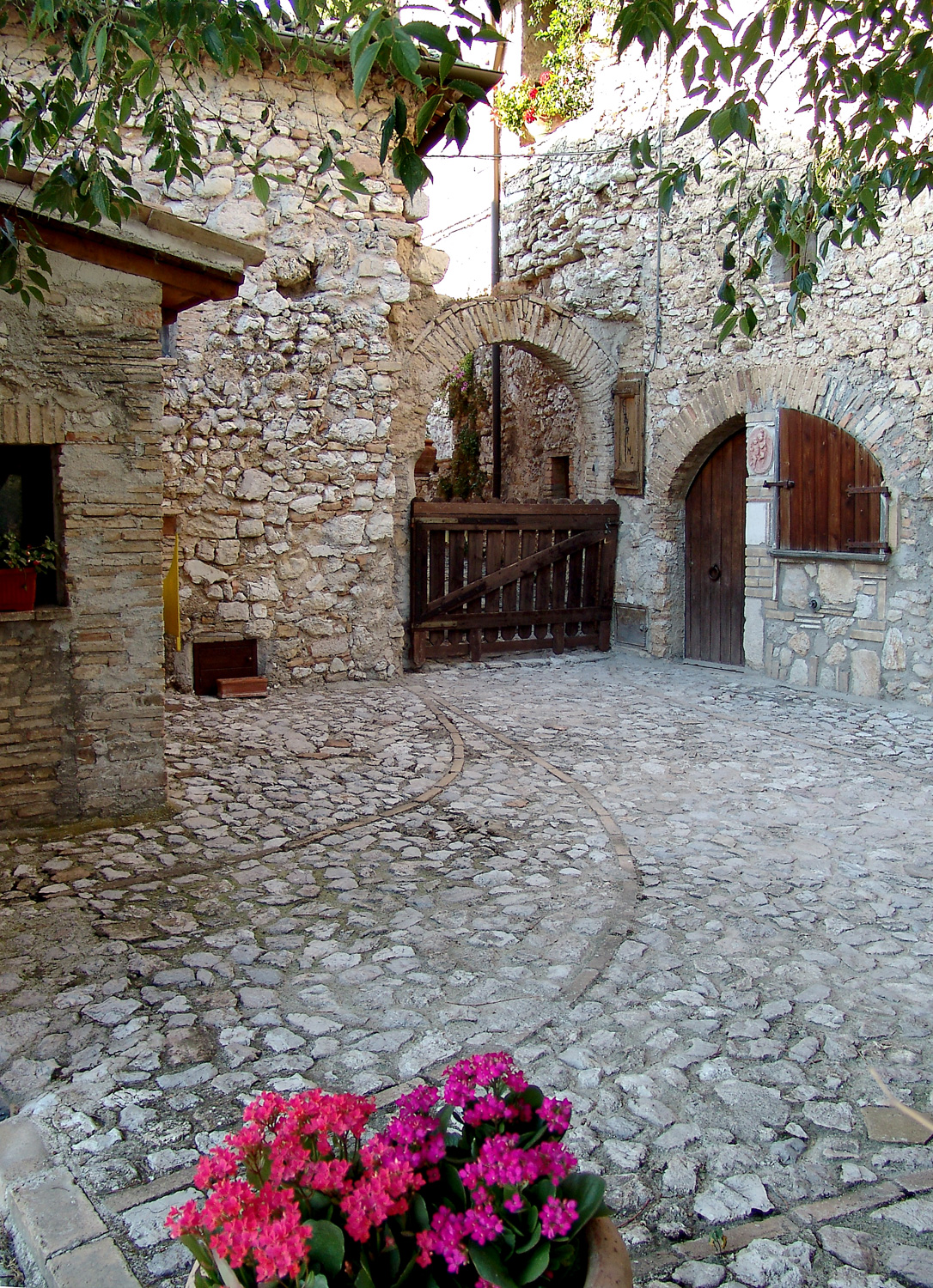 The history of the Castle
The history of the Castle
Lizori and the Spoleto valley below used to be preferred garrisons of imperial and republican Rome, of commanders and senators (for instance, it was Caius Marius Silla who had the tower soaring above the hamlet built in the second century before Christ), legendary conquerors coming from over the Alps like the Germanic Barbarossa and later Frederick the Second; they served as an exclusive refuge for emperors and popes, as a watchtower and a military stronghold, its sites were chosen mystics and clerics (from the Lombard and Carolingian era on) and were coveted by the neighbouring duchies while along the hillside, within the urban walls – the flashpoint border between Spoleto, Todi, Trevi, Foligno – the medieval settlement with its current layout was being built: perimeter defence structures which represent one of Italy’s few perfectly preserved triangular hillside fortifications.
 Two-faced Janus
Two-faced Janus
The god of “beginnings” (tangible and intangible ones), of “doorways”, one of the most ancient italic deities. The “pools” (piscinae) – in the valley underneath Lizori – gave name to Pissignano and its overhanging Castle (called later Borgo S. Benedetto) and were dedicated precisely to the two-faced Janus, just like the Temple erected at the splendid Clitumno springs. Besides, the legend says that precisely in the waters of Clitumno the nymph Camesena used to live, whose union with Janus is believed to be at origin of the italic race.
 “Pass not the genius of the place…”
“Pass not the genius of the place…”
The expression Genius loci derives from the classical knowledge of ancient Romans: soul, “mind”, spiritual presence of a place, a living and intelligent presence embodied in a precise site, in a unique alchemy formed by chemical, physical, environmental, energetic variables…a privileged criterion of choice, for privileged places. “Pass not unblest the genius of the place!” was the warning of the English poet George Byron to the traveller; he was referring precisely to this land (where he arrived in the spring of 1817), explaining in Canto the Fourth of his “Childe Harold’s Pilgrimage”
 “Nihil jucundius vidi…”
“Nihil jucundius vidi…”
From Virgil to Goethe, from Pliny the Younger to Herman Hesse, from Juvenal to Caligula, all the way to Maria Casimira, Queen of Poland, … and also Hans Christian Andersen, Alexander Dumas the father, Charles Dickens, Giosuè Carducci (who dedicated to the Clitumno springs one of his most beautiful odes)…Nobles and artists (writers, painters, poets) from every corner of Europe …: Lizori and its land boast traces of high-standing visitors, traces that we would hardly find elsewhere… “I have never seen anything lovelier than my Spoleto valley”(“Nihil jucundius vidi valle mea spoletana”): so exclaimed, besides, Saint Francis while passing precisely through the olive trees above the hamlet.
-
Foreigners and local people
It is a weird fate that of a place that, historically, was never fully understood and was totally deserted and let go to ruin. In the course of the centuries, it took people from elsewhere to appreciate its value, people from Rome, from Spello, Trevi, Spoleto, Foligno: artists, literates, rulers, clergymen.
Therefore, the private subjects who started saving Lizori from ruin after 1976, were coming from all over Italy. Today the houses, the congress rooms, the gardens and the spaces for shows, they belong to Italians, Russians, Brazilians; single owners or Foundations and Associations that operate in various parts of the world and share the same project.
The scholars and students who participate in the art and science events organised at Lizori come from Europe, Australia and China, America and Asia. Local people and institutions have learned to acknowledtge the beauty and familiarity of the Hamlet, whose recovery indeed ignited a series of positive interactions that benefited the whole area. The tiny Lizori by the thousand-year-old history, clinged to the slopes of Mount Revaglioso has returned to be common heritage, of Umbria, of Italy, of the world.
-



You must be logged in to post a comment.